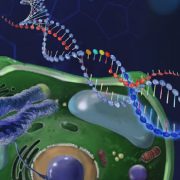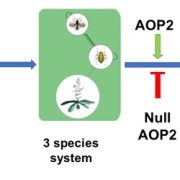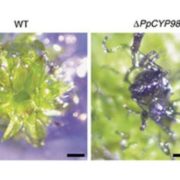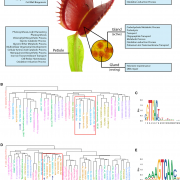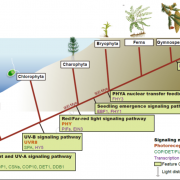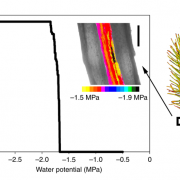Review: Promiscuity, impersonation and accommodation: Evolution of plant specialized metabolism ($)
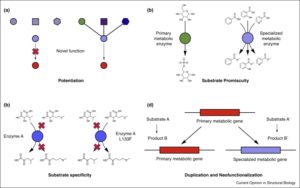 The huge set of chemical pathways beyond the conserved primary metabolic network is described as specialized metabolism (formerly known as secondary metabolism). The diversity of specialized metabolites is due to recent evolutionary innovations in enzyme function, as reviewed by Leong and Last. Key processes include enzyme and substrate promiscuity, changes in substrate specificity, and of course gene duplication and divergence. The authors provide examples of the involvement of these processes in the evolution of specialized metabolism. Case studies include: an enzyme involved in glucosinolate synthesis, BAHD acyltransferases, 4-coumarate:CoA ligase, and aromatic acid methyltransferases. Curr. Opin. Struct. Biol. 10.1016/j.sbi.2017.07.005
The huge set of chemical pathways beyond the conserved primary metabolic network is described as specialized metabolism (formerly known as secondary metabolism). The diversity of specialized metabolites is due to recent evolutionary innovations in enzyme function, as reviewed by Leong and Last. Key processes include enzyme and substrate promiscuity, changes in substrate specificity, and of course gene duplication and divergence. The authors provide examples of the involvement of these processes in the evolution of specialized metabolism. Case studies include: an enzyme involved in glucosinolate synthesis, BAHD acyltransferases, 4-coumarate:CoA ligase, and aromatic acid methyltransferases. Curr. Opin. Struct. Biol. 10.1016/j.sbi.2017.07.005


